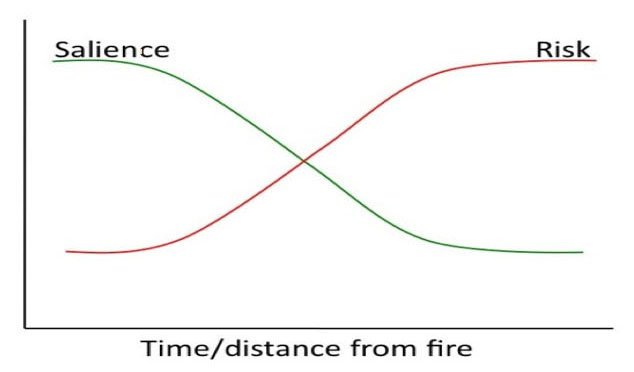At PERC’s 2016 Wildfire Solution Summit, political scientist Sarah Anderson shares findings from the Bren School’s Strategic Environmental Research Initiative on Wildfire and Climate Change (SERI Fire).
Politics and the Public in Wildfire Management
There are technological solutions to many environmental issues, but people and politics get in the way. Wildfire is an increasing problem, both in terms of fire suppression costs and acreage burned. Compounding the challenges of wildland fire management, are predictions of a hotter, drier climate, and more people are moving into the places that burn, the challenge of wildland fire management.

Shortly after a fire, nearby treatment is less important, yet more likely. Careful analysis shows that fuels treatment and fire suppression are almost twice as likely within three years of a fire. As people experience fire in proximity to their homes, they demand more fuels treatment and fire suppression. And where people are wealthier and more educated, and where the congressional representative is on a related committee.
Related reading:
Journal Article: “Technical Management in an Age of Openness: The Political, Public, and Environmental Forest Ranger”
by Sarah Anderson, Heather Hodges, and Terry Anderson.
Related viewing:
Video: An Analysis: Wildfire Management
Sarah Anderson and Terry Anderson discuss their findings on wildfire management and what drives Forest Service decisions in fuel suppression.
Learn more: live-perc-wp.pantheonsite.io/wildfire


